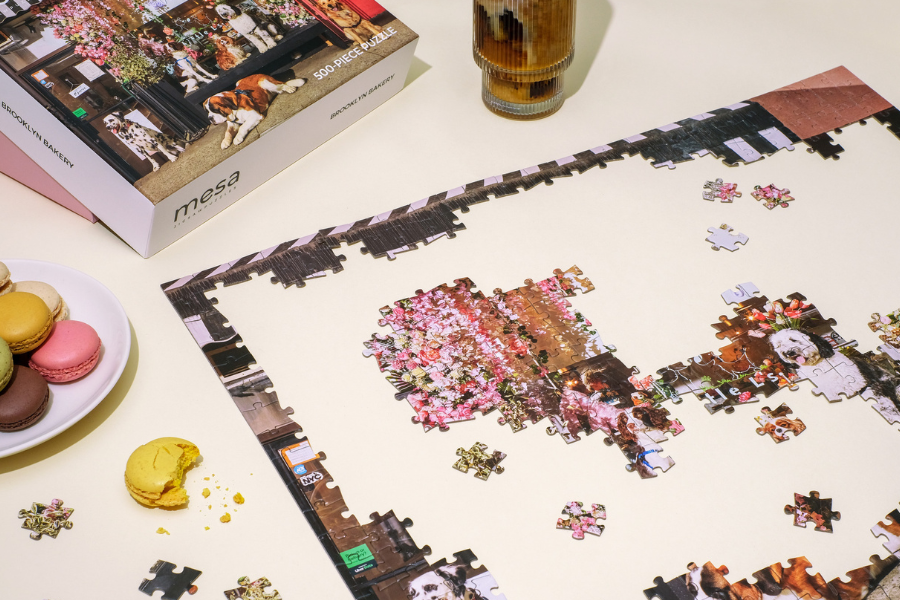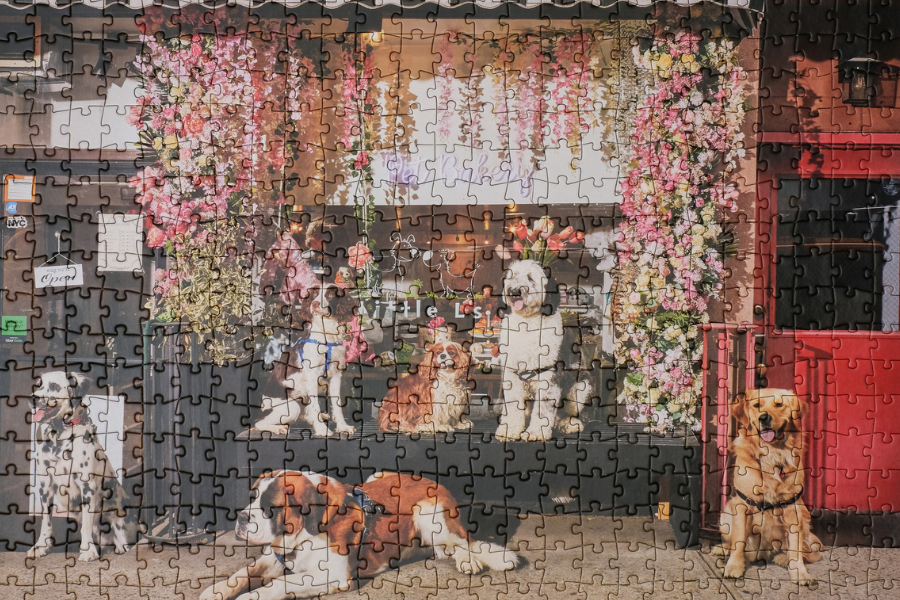In the broader realm of puzzles, jigsaw puzzles are a stimulating and enjoyable activity for kids and adults alike. Those brand new to the game, revisiting jigsaw puzzles, or even people who regularly put together puzzles may find themselves wondering what exactly is the distinction between a jigsaw puzzle and a regular puzzle?
These phrases are sometimes used interchangeably and folks may not find the distinction comes up very often. However, knowing the difference can make it easier for consumers to shop and find exactly what they’re looking for.
If you’ve ever been curious about the difference between a jigsaw puzzle vs. regular puzzle, keep reading!
Key Takeaways
- Puzzles refer to a broader category of games, while jigsaw puzzles involve pieces and creating a larger picture.
- Puzzles can often be played alone or with other players and tend to be based on solving a problem, or “cracking a code,” rather than winning.
- While they are distinct, there is a fair amount of overlap between puzzles and jigsaw puzzles in how they are approached — “puzzle” is simply an overarching umbrella.
What’s the Difference Between Games and Puzzles?
Games generally describe an activity with a specific set of rules, involving two or more players in competition with one another, working toward a finite end point. Players are often competing with one another, whereas a puzzle involves a more collaborative effort — essentially the players competing against the maker of the puzzle.
Puzzles don’t always have specific rules beyond reaching the end result, and they can be played alone or with others. Traditional games often need a minimum of two people.
Puzzle vs. Jigsaw Puzzle
You’ll often hear “puzzle” used in relation to jigsaw puzzles, and it’s now wrong! Jigsaw puzzles are certainly a subcategory.
A puzzle refers to the wider category of puzzle games, including jigsaw puzzles, crosswords, Sudoku, and more. A jigsaw puzzle refers to an interlocking puzzle that involves piecing together and connecting smaller pieces to form one large picture.
Jigsaw Puzzles vs. Puzzle Games
A puzzle game may include jigsaw puzzles but more generally describes games that involve solving a puzzle, generally using logic and problem solving skills. These puzzles may or may not involve physical pieces and may or may not be played alone or with other people.
Jigsaw puzzles specifically refer to puzzles involving the assembly of a picture. They still require players to use reasoning and problem solving skills that may be applied to other puzzle games to complete the task.
Frequently Asked Questions
What is the Definition of a Jigsaw Puzzle?
Let’s look a bit closer at the jigsaw puzzle meaning: Merriam-Webster defines jigsaw puzzles as “a puzzle consisting of small irregularly cut pieces that are to be fitted together to form a picture.”
The jigsaw, a vertical reciprocating saw, was invented in 1855. The word came from the nickname jig, used because of the saw’s rapid up-and-down motion, similar to a sewing machine (just with a blade instead of a needle).
While “jigsaw puzzle” is specific in the type of game it references, there are many types of jigsaw puzzles. The most common is a standard two-dimensional jigsaw puzzle, though the market is currently saturated with a number of other options.
Some other common jigsaw puzzle types include coloring jigsaw puzzles, three-dimensional jigsaw puzzles, digital jigsaw puzzles, glow-in-the-dark jigsaw puzzles, WASGIJ puzzles (or “jigsaw” backward, describing puzzles where the image on the box doesn’t match the puzzle’s final product and generally requiring more effort and ingenuity among players), and more.
Why Do They Call it a Puzzle?
If you’ve ever used the word “puzzled” in relation to feeling stumped or perplexed, it’s clear how these games got their name! The end game of a puzzle is essentially to “crack the code,” to unravel the mystery at hand, whereas a game is more about winning with a sense of competition at play.
Final Thoughts
At the end of the day, the distinction between “puzzle” and “jigsaw puzzle” may just amount to a fun piece of trivia, but understanding the difference can also be essential to narrow down your selection process if you’re specifically searching for a jigsaw puzzle (or awesome dog jigsaw puzzles), a game involving pieces and creating a bigger picture. Both require critical thinking skills but can also offer a number of different challenges and experiences.
For puzzle and jigsaw puzzle enthusiasts alike, a little additional knowledge never hurts!



